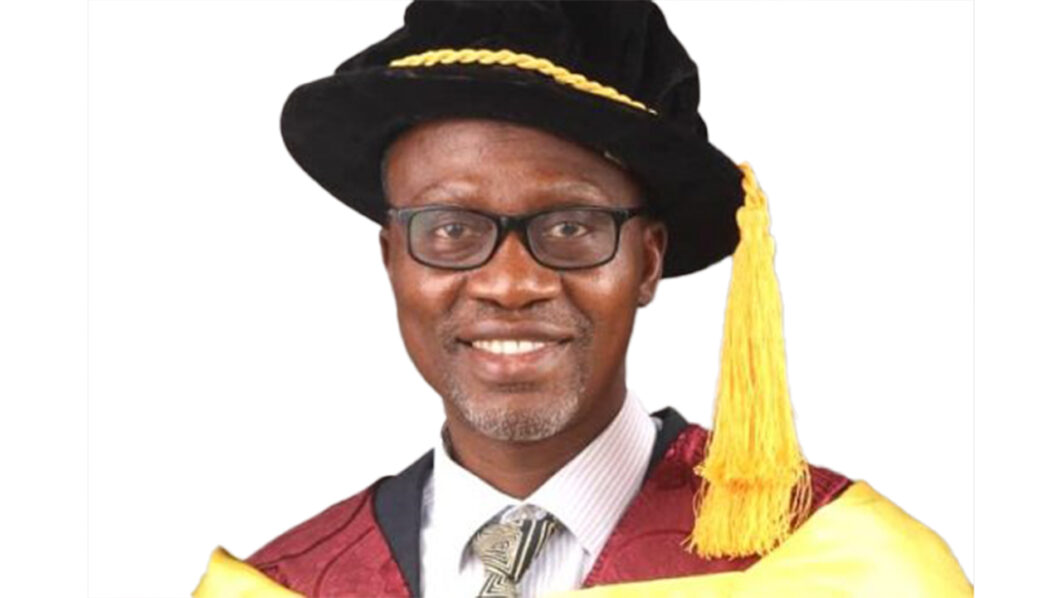Education
Implementation of new varsity curriculum begins September — NUC

Implementation of new varsity curriculum begins September — NUC
National Universities Commission (NUC) has revealed that the implementation of the new Core Curriculum Minimum Academic Standards (CCMAS) will commence by September 2023 in line with the Federal government’s efforts to reposition and revitalize Nigerian universities.
In the same light, the Federal government has tasked tertiary institutions in the country to strengthen their quality mechanism in producing graduates who are highly skilled and employable to contribute to national development efforts.
Acting Executive Secretary of NUC, Mr Chris Maiyaki, speaking at the Stakeholders’ Colloquium on CCMAS on Wednesday in Abuja said the document would reposition Nigerian universities to be among the best rated in Africa.
He added that CCMAS was designed to guide institutions on development of curricula for their programmes while bringing necessary innovation into the content and delivery of their programmes towards achieving the overall goals of education and training in the country.
Maiyaki said that CCMAS would make up 70 per cent of the curriculum while the university decides what to include in the remaining 30 per cent.
He noted the reviewed curriculum is endowed with unique features tailored to meet the evolving demands of the rapidly changing world, adding that it emphasises interdisciplinary learning, soft and critical skills development, entrepreneurship and value creation.
The NUC boss added, ”The role and development of the CCMAS is to ensure commitment in advancing our education and great nation.
”NUC is primarily dedicated to ensuring quality and global competitiveness of Nigerian universities as well as the graduates we produce.
” The development of the CCMAS went through a painstaking process by bringing experts from our universities comprising of professors, regulatory bodies, Nigerian Economic Summit Group (NESG) and all stakeholders.
‘The CCMAS reflects global initiative that will equip graduates with knowledge and wherewithal that will advance the development of the nation,” he said.
Minister of Education, Prof. Tahir Mamman, in his remark, said President Bola Ahmed Tinubu-led administration is unwaveringly committed to the continuous repositioning and revitalisation of the entire education sector for a quickened socio-economic development of Nigeria.
He urged universities to make optimal use of the 30 per cent university senate’s input, stressing that tertiary institutions in the country must strengthen their quality mechanism to ensure that graduates who are produced are highly skilled and employable to contribute to national development efforts.
Mamman advised universities to ensure that learning outcomes, skills as well and soft skills were acquired, irrespective of the core discipline.
He said that the skills must be readily applicable to the environment of the university, the country in particular and the global community in general.
”There is no better place and time than now to develop a strategy that will guide tertiary institutions particularly universities in their mandate to provide appropriate manpower for the country.
”This is through using a curriculum and applying minimum standards that would guarantee we teach our students in such a way and manner that they would be highly skilled and employable to contribute to national development efforts.
READ ALSO:
-
UK pledges enhanced synergy with Nigerian army
-
94-year-old man nab for raping teenage girl in Adamawa
-
Naira depreciates, trades at N773.42/$ in investors and exporters window
” 70 per cent of the total curriculum is captured in the CCMAS while 30 per cent of the curriculum has been ceded to universities Senates to build in the uniqueness of their various universities.
”This principle allows for a good deal of adaptation that suits not only local peculiarities of the universities but provides universities opportunities to carve a niche for themselves in areas of comparative advantage,” he said.
The minister commended universities who had concluded their work on the 30 per cent component and submitted same for review.
He also urged those who have not to endeavour to do so in the shortest possible time as the next academic session rolls in.
He pledged the commitment of the Federal Government in ensuring that our education system remained nationally relevant and globally competitive.
In a keynote address, Former Vice Chancellor, Obafemi Awolowo University, Ile-Ife, Prof. Michael Faborode said the idea of the CCMAS was to promote diversification and differentiation in the system.
This he said was to provide proper conceptual administrative guidelines and a harmonised legal framework for higher education.
Faborode commended the over 70 per cent universities that had already complied with the uploading of their 30 per cent curriculum inputs into the CCMAS.
He said this was the way to go so that universities could be globally relevant and competitive and as well provide the educational needs to the students so they could be employable after graduation.
CCMAS was developed in 2018 following the review of the Benchmark Minimum Academic Standards (BMAS) –the curriculum guide for Nigerian universities, which had been in use since 2007.
The CCMAS also expanded BMAS from 12 to 17 disciplines to reposition the system to reflect the realities of the 21st century.
The 17 disciplines are Administration and Management, Agriculture, Allied Health Sciences, Architecture, Arts, Basic Medical Sciences, Communication and Media Studies, Computing and Education.
Others are Engineering and Technology, Environmental Sciences, Law, Medicine and Dentistry, Pharmaceutical Sciences, Sciences, Social Sciences and Veterinary Medicine.
Implementation of new varsity curriculum begins September — NUC
Education
Canadian province opens 2025 government internship programs for international students

Canadian province opens 2025 government internship programs for international students
The Government of Prince Edward Island (PEI), a Canadian province, is inviting applications for its 2025 Internship Program.
This opportunity allows international students and recent graduates to gain experience working within the provincial government.
The internship program, which is a one-year temporary job assignment, offers participants the chance to build skills and gain professional experience in various PEI government departments.
According to the Prince Edward Island, the program also provides access to workshops, networking events, and other professional development resources to help interns grow in their careers.
The PEI internship program is set to begin in May 2025 and runs for one year. Interns will have the opportunity to work in multiple government departments, participating in workshops and professional development activities. These include career planning, conflict management, emotional intelligence, and training on equity, diversity, and inclusion (EDI), as well as anti-racism in the workplace.
READ ALSO:
- Police kill three suspected kidnappers, arrest two others in Imo
- Lagos govt seals Coca-Cola, Guinness, Peak Milk
- Makinde speaks on Sharia court controversy in Oyo
Additionally, the program provides a platform for;
- Networking,
- Helping interns to connect with government professionals and
- Build valuable relationships within the public service sector.
- Interns will also receive support to help them understand eligibility for government jobs and navigate potential future opportunities in the public service.
Eligibility and application requirements
To be eligible for the program, applicants must have completed a;
Post-secondary program within the past 36 months. Additionally,
- Candidates should be Canadian citizens, permanent residents, or eligible for a Canadian work permit.
- International students who meet these requirements are encouraged to apply.
Applications are currently being accepted, and interested candidates must submit their applications through the official PEI Internship Program Portal.
Interviews for shortlisted candidates will be held on March 4th and 5th, 2025. The internship program will begin in May 2025.
How to apply and important dates
Applicants can apply online through the official PEI Internship Program Portal.
Additional details, including position descriptions and participating departments, are available on the official website of the Government of PEI.
Canadian province opens 2025 government internship programs for international students
Education
Two ex-VCs, JAMB registrar to attend Prof. Ibraheem UNILAG inaugural lecture Wed

Two ex-VCs, JAMB registrar to attend Prof. Ibraheem UNILAG historic inaugural lecture Wed
- History beckons as Mass Comm alumnus delivers inaugural lecture Wed
History will be made this week Wednesday December 18, 2024 at University of Lagos when an alumnus of the university’s Mass Communication Department, Ismail Adegboyega Ibrahim, professor of journalism and communication studies, will deliver inaugural lecture as a lecturer of the department.
Ibraheem, a 1990 graduate of the university, returned to the institution in 2011 as a lecturer.
It is the first time a former student of the department will be delivering an inaugural lecture 58 years after its establishment.
Ibraheem, director of International Relations, Partnerships and Prospects at the UNILAG, will speak on “Casino Journalism and the End of History.”
The university’s Vice-Chancellor, Professor Folasade Ogunsola, will chair the event, according to a statement from the institution.
Two former vice-chancellors of the university, Professor Rahamon Bello and Professor Oluwatoyin Ogundipe, are expected to grace the lecture along with the Registrar of the Joint Admissions and Matriculation Board (JAMB), Professor Is-haq Oloyede, among others.
The lecture is scheduled for 4pm at the J.F. Ade. Ajayi Auditorium, UNILAG, Akoka.
Members of the University Community and general public are invited to join the lecture physically or virtually via Zoom Meeting ID:862 1255 2361.
Education
Austria offers scholarship grant for int’l postgraduate, research students

Austria offers scholarship grant for int’l postgraduate, research students
The Republic of Austria is offering an opportunity for international postgraduate students, PhD candidates, and postdoctoral researchers through the Ernst Mach Scholarship 2025.
Managed by OeAD-GmbH, Austria’s agency for education, this scholarship aims to support talented individuals in advancing their academic and research careers in Austria.
Details of the scholarship program
According to OeAD, the Ernst Mach Scholarship is open to students and researchers from various academic disciplines. This includes areas such as;
- Natural sciences
- Technical sciences
- Human medicine
- Health Sciences
- Agricultural sciences
- Social sciences
- Humanities, and arts.
The scholarship provides funding for semester or one-year grants, with research grants lasting from one to nine months, making it accessible to a broad range of applicants.
Benefits of the Ernst Mach scholarship
The scholarship offers numerous benefits to successful applicants.
- Recipients will receive a monthly stipend of €1,300 for the duration of their stay in Austria.
- Accommodation assistance is available, with affordable housing options ranging from €330 to €800 per month.
- OeAD will also provide administrative support to help applicants find suitable housing.
READ ALSO:
- Afe Babalola gets court order banning publication, sale of Dele Farotimi’s book
- Over 50 nuisance taxes will be scrapped — FG
- BREAKING: Blackout as National grid collapses again, 12th time in 2024
Grant holders will receive guidance on obtaining health insurance accepted in Austria, with a cost ranging from €55 to €200 per month. The scholarship also waives tuition fees at public universities, further reducing the financial burden on participants.
A travel subsidy of up to €1,200 is available for applicants from eligible developing countries, with travel invoices required for reimbursement. Moreover, recipients will have the opportunity to build valuable connections with top researchers and institutions in Austria, which can significantly enhance their academic and professional networks.
Eligibility criteria for applicants
The Ernst Mach Scholarship is open to early-career academics who are passionate about advancing their research. To be eligible, applicants must be;
- Postgraduate students pursuing a PhD outside Austria or postgraduates and postdoctoral researchers looking to conduct research in Austria.
- Additionally, postdocs employed at universities outside Austria are also eligible to apply.
- Applicants must be 35 years old or younger (born on or after October 1st, 1989) and should not have lived, studied, or worked in Austria for more than six months prior to applying.
- Proficiency in English or German is required to ensure effective communication during the research process.
How to apply for the Ernst Mach Scholarship
To apply for the Ernst Mach Scholarship 2025, interested individuals must visit the official OeAD-GmbH website.
The application deadline is February 1st, 2025. Applicants should ensure that they meet the eligibility requirements and submit all required documents before the deadline.
Austria offers scholarship grant for int’l postgraduate, research students
-

 metro3 days ago
metro3 days agoFarotimi to pursue disbarment over arrest, defamation allegations
-

 Business2 days ago
Business2 days agoReal reason Dangote, NNPC drop petrol price — IPMAN
-

 Sports1 day ago
Sports1 day agoAnthony Joshua prostrates before Governor Abiodun during Ogun visit
-

 Health2 days ago
Health2 days agoABU Teaching Hospital will begin kidney transplant in 2025 – CMD
-

 metro1 day ago
metro1 day agoWanted terrorist commander, Bello Turji, a dead man walking – DHQ
-

 metro3 days ago
metro3 days agoNigerian govt urged to intervene in Mozambique post-election violence
-

 metro23 hours ago
metro23 hours agoFour countries that won’t celebrate New Year
-

 metro1 day ago
metro1 day agoN180m not missing from my account, it was all a plan – Verydarkman













